
About Wrath and Hope
The ancient Roman philosopher Seneca 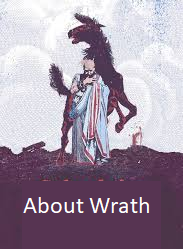 (4 BC – 65 AD) wrote a beautiful essay On Wrath which, although it is in three books, can be divided into two parts, it is addressed to his older brother Gallio, the first part deals with a theoretical issue ( I-II.17) and talks about the horrors of Wrath and its definitions, the second part gives tips on how to calm people, both children and adults, using real cases as examples.
(4 BC – 65 AD) wrote a beautiful essay On Wrath which, although it is in three books, can be divided into two parts, it is addressed to his older brother Gallio, the first part deals with a theoretical issue ( I-II.17) and talks about the horrors of Wrath and its definitions, the second part gives tips on how to calm people, both children and adults, using real cases as examples.
Although the texts are very interesting and intelligent, there is an essential gap that cannot be achieved through spiritual asceticism, the hope that the context will be changed by actions that go beyond the personal, social or group level, raising the level of spiritual health of a person. group.
According to the philosopher, a great man should never become angry and, when it is not possible to avoid anger, he should try to calm down as soon as possible, his famous phrase is:
“No man becomes more courageous through anger, except one who, without anger, would not have been courageous: anger, therefore, does not come to help courage, but to take its place” (I.13).
However, in social life there are situations in which good and fair men are subject to the power of authoritarian, presumptuous and arrogant men who humiliate, exploit and mistreat humble people.
To this the Stoic responds with another sentence; “Let nothing be allowed to you while you are angry. For what reason? Because he will want everything to be allowed.” (III.12), said in a modern way, if we lose our calm when pointing out a mistake, we can lose our reason in reacting to the error.
Hope is fundamental when an entire social, political or even religious situation becomes difficult and points to a path that seems to be without that of destruction, error and fear, it is not about being in conformity, we wrote in the previous post about the disposition which precedes the intention, but the intention to calm propagate peace and avoid anger becomes both hope and the possibility of viable course correction, anger does not, initiates or expands the confrontation.
It is necessary to believe that the union of forces that desire positive change has a light that is superior to the set of human forces, because they can improve the “disposition”, the climate in favor of sensible and constructive attitudes and raise the moral standard in a virtuous circle .
There is an inner Being
The philosopher Hannah Arendt had already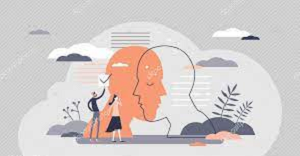 developed the theme of Vita Contemplativa, and the Korean-German essayist Byung Chul-Han expands on this theme in his book with the same name, but we will only point out the new features there, including what he takes from Heidegger that It’s the disposition.
developed the theme of Vita Contemplativa, and the Korean-German essayist Byung Chul-Han expands on this theme in his book with the same name, but we will only point out the new features there, including what he takes from Heidegger that It’s the disposition.
In Being and Time, Heidegger works on the verb stimmen, using the conjugation stimmung (which is translated as disposition) and also uses Gestiment-Sein (to be willing), but which in German is something like being in tune, being in tune with something and This modifies the concept of intention.
Literally disposition, a state of mind precedes any intentionality referred to objects: “Disposition has already opened up, however, being-in-the-world as a whole, and makes primarily possible a direction towards [something]” (Heidegger apud Han, 2023, p. 66).
Thus, the relationship with the external world, with objects, with beings and with everything that comes from outside the Being, means that we are disposed, says the text: “Disposition opens up to us the space only in which we confront ourselves with a entity. It reveals the Being” (Han, idem).
This vision transforms what we are and what we think, in spiritual terms, what the soul is disposed to and what it is directed towards from interiority, says the text: “The contemplative dimension that inhabits it transforms it into a correspondence. It corresponds to what “addresses us as the voice [Stimme] of being”, by allowing itself to be defined by it” (Han, 2023, p. 67).
Thus thinking becomes something other than logical articulation or narrative discourse: “Thinking means “opening our ears”; that is, listen and listen carefully. Speaking presupposes listening and responding. “Philosophia is the truly consummate correspondence that speaks attentively to the call of the being of beings. The correspondent hears the voice of the call […]” (Han, 2023, pgs. 67-68).
All of this seems excessively philosophical and in fact it is, but it means, as the author states, that something defined, and we have many pre-arranged definitions, is something that is condensed in our mind and our thoughts “in the pre-reflective scope”, I mean inside us.
So it is what we have inside, in our interiority that helps or limits us, says the author quoting Heidegger again: “If the fundamental disposition is left out, then everything is a forced cluster of concepts and shells of words” (Heiddeger apud Han, p. 68).
Thus, it is not the outside and what we take outside of ourselves that defines us, but what we have inside and that is why interiority is fundamental for any analysis.
HAN, Byung-Chul. (2023) Vita contemplativa: ou sobre a inatividade. Trad. Lucas Machado. Brazil, Petrópolis, RJ: Vozes.
Hypocrisy and power
In the analysis of political and ideological currents, the notion and problem of hypocrisy is neglected, so it is possible to defend democracy by defending autocratic attitudes, by combating corruption, to justify elements of active and passive corruption, in fact, the active one which is the fact of offering illegal compensation (and it is not said what is illegal) and passive is when a public official receives undue compensation (when possible) from third parties.
the notion and problem of hypocrisy is neglected, so it is possible to defend democracy by defending autocratic attitudes, by combating corruption, to justify elements of active and passive corruption, in fact, the active one which is the fact of offering illegal compensation (and it is not said what is illegal) and passive is when a public official receives undue compensation (when possible) from third parties.
The term hypocrisy in ancient Greek (hypocritás) is similar to the current one, it is when a social actor intentionally acts in a simulated way, in acts or words, that hide how he thinks or how he actually acts, the rule today is to say the opposite to confuse public opinion.
As a term used by contemporary authors, I remember Machiavelli, as critics of political reason, and Foucault, who sees it as a central element of power relations, although his analysis moves to the psychological field.
Byung Chul-Han’s psychopolitics moves to the media field, the author believes that the power of digital media facilitates this type of relationship, although he does not directly call it hypocrisy, but gives an interesting recipe in his book “What is power”, “The modern loss of faith, which does not only concern God and the beyond, but reality itself, makes human life radically transitory”, so there is nothing perennial, since everything changes.
The basis of modern hypocrisy is to induce man to believe in a life of ease, what Byung Chul-Han calls an excess of positivity, pain and sacrifice have been abolished, “We forget that pain purifies. The culture of enjoyment lacks the possibility of catharsis. Thus, we suffocate it with the residues [Schlacken] of positivity, which accumulate beneath the surface of the tanning culture.”
This makes man happier, the answer is the opposite of what society promises, depression, bipolarity and boredom are contemporary diseases, “Depression is the illness of a society that suffers under an excess of positivity”.
Men and women, freed from this society of performance, exercise, and despiritualized asceticism, without suspicious and persecutory attitudes, become more affable: “Ordinary men and women, given the opportunity for a happy life, will become more gentle and less persecutory and inclined to view others with suspicion.”
It is possible to reestablish mutual trust, healthy relationships, empathy and fraternity, making society healthier and less conflictual.
Han, Byung-Chul. (2018) What is power?. NY; Wiley.
Hopes for peace
The Russian elections take place on March 15th and 17th, but Putin’s likely political opponent, former deputy Boris Nadejdin, had his candidacy rejected this Friday, February 2nd by the vice-president of the electoral commission Nikolai Bulaiev, who said reasons for irregularity and which will point out other technical problems.
and 17th, but Putin’s likely political opponent, former deputy Boris Nadejdin, had his candidacy rejected this Friday, February 2nd by the vice-president of the electoral commission Nikolai Bulaiev, who said reasons for irregularity and which will point out other technical problems.
This procedure is routine in Russian elections, and sometimes opponents disappear or are arrested for some reason or minor infraction, dictators control the state machine to forge a democracy that does not exist in practice and nationalist governments also grow.
One of the reasons is that some people on the list were considered dead, Nadejdin joked:
“You and I are the most alive of the living. If anyone imagines that they see dead souls on my subscription lists, that’s not a question for me, maybe they should look for the church, or an exorcist”, according to news on Telegram, a fair election could change the outlook for the war in Ukraine.
Peace in the Middle East is also possible, Israel wants the release of all hostages and Hamas wants an end to the war, reiterating this Saturday (03/02) that the complete withdrawal of Israeli forces from the Gaza Strip are prerequisites for hostage release agreement.
New attacks on Houthi targets in Yemen were carried out by the United States and the United Kingdom this weekend, and the organization, a group of multiple militias, is believed to be armed and financed by Iran, which denies the accusations.
According to the American Department of Defense, there are several militias financed by Iran, including Hezbollah and the Houthis, after two Americans were killed in the interception of a boat carrying weapons to rebels in Yemen, the American Department of Defense released a photo (above) .
There are always circumstances and situations that can end a war, it is necessary no limit condemning the power of tyrants and warmongering governments so that the world moves towards peace.
Power and respect
Byung Chul-Han in his book The Swarm, clarifies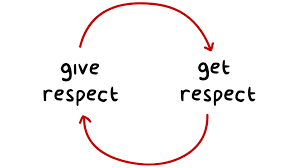 that only respect has symmetry, that is, it can make the relationship one of mutual respect and recognition of what is good for everyone.
that only respect has symmetry, that is, it can make the relationship one of mutual respect and recognition of what is good for everyone.
This is one of the greatest values of social action, solidarity with those who for some reason made a mistake or had a deviation in their behavioral action, being allowed to return to social life and the hope of a new life.
It is necessary to experience something new, to resume a respectful relationship with the Other, and to social reintegration. This does not mean tolerating what is unacceptable, whether morally or socially, but having a new life experience of resocialization and reorganization of life. guys.
Power, when exercised only to repress and combat what is socially and morally reprehensible, should not be absent, it would be an omission and disorganization, but every human being and every person can and should be allowed their resocialization and social reinsertion.
Social life has deteriorated not because people make mistakes, this is typical of social and human life, but because resuming a respectful relationship, being patient in listening to the Other and allowing them to change is giving them hope and conditions to have a new experience. and respect.
The culture of exclusion, hatred and lack of forgiveness leads to a hostile society, the end of fair social relations and the path that provides the possibility for greater equity and justice for all. Exclusion thickens the broth of marginality, the culture of disrespect and gives rise to all types of polarization and confrontation.
A society without a return to a balanced social life, fair in all senses, including moral and economic, makes the development of a culture of peace and fraternity possible.
There is no way back, just imposing rules and concepts, often dubious and without an adequate practical reason (the Greek phronesis), becomes an ideological direction that is as hostile as what it condemns: authoritarianism and ignorance.
There is a lack of common sense, practical reason in all areas of society, from political to religious, the practice of distrust, discredit and disrespect for different thoughts, makes the field of authoritarianism increasingly present and the field of democracy and equality distant.
The practice of daily attitudes of good, of patient listening is the path for those who truly desire a more fraternal and supportive world, the practice of aggression and hatred does not lead to a real possibility of returning to the path of war and confrontation.
Those who say they follow Love and solidarity need to get out of words and into actions.
Aretê and righteousness
It is necessary to understand that in ancient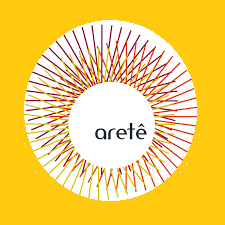 philosophy, mainly in Aristotle and Plato, the objective is to develop a philosophy for the polis, education, the politician (for Plato he must be a philosopher in the sense of excellence of thought) and for Aristotle the citizen, considering that only free men were eligible for citizenship.
philosophy, mainly in Aristotle and Plato, the objective is to develop a philosophy for the polis, education, the politician (for Plato he must be a philosopher in the sense of excellence of thought) and for Aristotle the citizen, considering that only free men were eligible for citizenship.
Thus aretê translated as virtue, is also a characteristic of a particular excellence, but it is not its translation as proposed by some interpreters, the word that Aristotle uses for this is phronesis, a practical theoretical thought that leads to special wisdom.
We cannot assume that men who do not have a private life of “excellence” and live it wisely are men capable of public exercise, attachment to power, money and the vices of contemporary life, done in the name of freedom, inhibit the ability of the politician.
We no longer talk about the moral field, it is not about theft and lies, the name given today is fake news due to its publication by the media, and the lie may have a short leg, but its action confuses social life, misinforms and leads to other vices, in addition to personal fanaticism.
It is also important to address the issue of freedom, we can do whatever we want, but we cannot ignore the consequences, an immoral and dishonest life does not lead to a fair and balanced social life, other vices will accompany greed and power for power’s sake.
So it doesn’t take long for those who see freedom in this mistaken sense to pay with deformations in their personal lives, involvement with anti-social forces, for example, from trafficking to deaths and human trafficking, like those who have already gained publicity.
It is difficult in this context of a mistaken vision of freedom, they talk about righteousness, good customs, from personal to social, empathy and solidarity, what exists is demagoguery only for the immoral exercise of politics, power and public money.
Culture, intelligence and wisdom
The problem of contemporary culture has already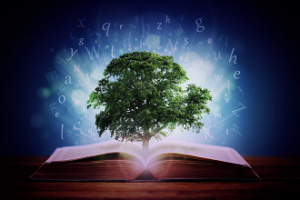 been addressed in several posts, psychiatrist Anthony Daniels who signs his books as Theodore Darlrymple (What We Made of Our Culture, Anything Goes, The Knife In, etc.), intelligence continues to be questioned now with the scapegoat of the digital universe, but whose crisis has been going on since the beginning of the last century (neopositivism, neologicism and the simplistic view of reality), now takes on the contours of a lack of balance, common sense and even some sense of humanity.
been addressed in several posts, psychiatrist Anthony Daniels who signs his books as Theodore Darlrymple (What We Made of Our Culture, Anything Goes, The Knife In, etc.), intelligence continues to be questioned now with the scapegoat of the digital universe, but whose crisis has been going on since the beginning of the last century (neopositivism, neologicism and the simplistic view of reality), now takes on the contours of a lack of balance, common sense and even some sense of humanity.
Edgar Morin explains this lack of wisdom through the disciplinary and segmented view of reality, a complete absence of a complex and broad vision that gives rise to what he calls polycrisis, however it is important to question what wisdom is.
In the Greek sense, it is not private knowledge in the sense of morality, but public and social, which aims to minimize exacerbations of the self’s egocentric impulsiveness, when placed in the perspective of the work of art, it reaches a level of universal, good and beautiful principle.
The Greek word as “friend of knowledge” or knowledge is reductionist, one of the Jewish words for wisdom is chokmah or tushiya which mean wisdom that leads to practical success, it seems more appropriate to the current reality, because it is wise if it has practical meaning for life of each person and of humanity as a whole.
This is in good agreement with the Greek word proposed in terms of a virtue, phronesis, which is usually translated as prudence, a term that the contemporary philosopher Hans-Georg Gadamer adopts but translates as serenity, judging it to be closer than prudence.
Those who claim merely objective knowledge, with an idealistic flavor, are in reality impractical, indicating a lack of wisdom, they become impulsive and active (in the sense of the Vita activa that Hanna Arendt and Byung Chul Han claim), typical of Western society. tiredness.
We want quick, consumerist or media-based knowledge and it has nothing or little to do with wisdom, which requires thought, contemplation and non-immediate thinking about facts.
Current society has deviated from practical knowledge because it demands intelligence and culture without realizing the deep connection it must have with wisdom that comes from a deeper reflection on the Being, things and the essence of life.
We defend peace, but we do not avoid catastrophe, war, hatred and dialogue and respect for those who are different, there is no practical wisdom in this type of contemporary thinking.
Resistance or catastrophe
So says the article by the century-old thinker and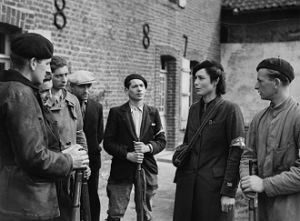 educator Edgar Morin, in the article for the Italian newspaper La Reppublica, we are “heading towards probable catastrophes”.
educator Edgar Morin, in the article for the Italian newspaper La Reppublica, we are “heading towards probable catastrophes”.
And he asks: Is this catastrophism? This word exorcises evil and gives an illusory serenity. The polycrisis that we are experiencing across the planet is an anthropological crisis: it is the crisis of humanity that cannot become Humanity, the word polycrisis has already been used by the author in other contexts: that of thought, the ecological and social crisis, now he adds one anthropological, other authors say the age crisis of the anthropocene.
He, like other authors, pointed to this crisis, but believed that a change of direction was possible, now it seems too late, “we don’t know if the world situation is desperate or really desperate”, it doesn’t mean with or without hope, like or without despair , we have to move on to a Resistance, and now different from that of the 2nd. war in which France was occupied by the Nazis (photo), now the world is occupied by polarization and hatred.
The facts and situations drag us into an unprecedented war, “we are condemned to suffer the struggle between two imperialist giants with the possible warlike intervention of a third”, as the author says, “the first resistance is that of the spirit, which must be capable of resisting the intimidation of all the lies spread as truth and the contagion of all collective drunkenness”, calls for a spirit of sobriety and of those who believe, of faith and hope.
Today we must know how to resist hatred and contempt, “it requires the effort to understand the complexity of problems without ever giving in to a partial or unilateral vision. It requires research, verification of information and acceptance of uncertainties” wrote Morin.
This “resistance also implies the coordination of associations that are dedicated to solidarity and the rejection of hate. Resistance would thus prepare young generations to think and act through the forces of union, fraternity, life and love.”
It’s not about finding justice in some kind of hate, but hating the hate itself, it’s not about cheering for this or that side of the war, but making war on war itself.
The resistance that Morin calls for must involve all people of good will and solidarity among those who truly know the consequences of such a war, beyond speech.
The resistance of the spirit of humanity
Victor Serge wrote “Midnight of the Century” in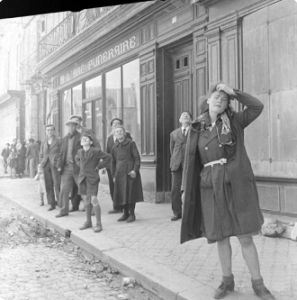 1939, in the middle of the 2nd. world war, now in an article published in La Reppublica, on 24-01-2024, the French sociologist Edgar Morin published an article: “The resistance of the spirit” about the crisis of current wars.
1939, in the middle of the 2nd. world war, now in an article published in La Reppublica, on 24-01-2024, the French sociologist Edgar Morin published an article: “The resistance of the spirit” about the crisis of current wars.
The war in Ukraine mobilized economic aid from much of the world, while on the Russian side, economically weakened by the sanctions imposed by Western nations, it strengthened both technical-scientific development and the bloc formed with China.
Serge, an anarchist by origin, who supported the Russian Revolution, saw it bureaucratize and persecute all real and imaginary enemies in the Stalinist period, described in “The Great Terror” (1934-38), years before describing the horror to midnight, and whatever you say about today.
A new focus emerged after a massacre of civilians by Hamas on October 7, 2023, followed by deadly Israeli bombings in the Gaza Strip.
In Morin’s analysis, which has been developed for some time, the progress of knowledge occurred by creating barriers in disciplines that are increasingly closed in their object, which leads to a new type of almost blind thinking, linked to the dominance of calculation in a technocratic world, the progress of knowledge does not consider the complexity of reality and becomes blind.
The result of a lack of clarity and understanding of human life exposed by the ease of access to all life on the planet, without its understanding, has led to dogmatism and fanaticism, and a crisis of morals while hatred and idolatries spread.
Recalling the years of Nazi occupation in France (photo Carentan France, June 1944 From the LIFE Magazine Archives), in which Morin himself was a member of the French Resistance, he now evokes a resistance of spirit that avoids almost desperate or truly desperate action, and maintains hope through Resistance.
This resistance implies safeguarding or creating an oasis of communities endowed with a say in relative autonomy (agroecological) and social and solidarity economy networks.
This action also implies associations that are dedicated to solidarity and rejection of hate.
Ontology and Power
Not the external aspects that show what kind of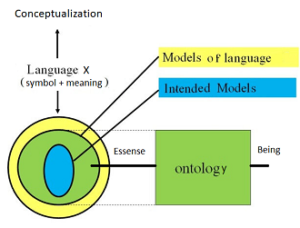 power we nurture and defend on a daily basis, but those that we concretely place inside our Being and practice as a consequence of what we have inside.
power we nurture and defend on a daily basis, but those that we concretely place inside our Being and practice as a consequence of what we have inside.
Just like vices, virtues can also have a virtuous circle, they can become habits, and in the face of each phenomenon or thing, we take an attitude that has a good or bad intention.
Power is strength, capacity and, at the same time, authority, but there is the authority of testimony and public recognition, which is a power that is imposed through respect, the only relationship that can give it symmetry (equality before the Other) , and there is the power of force, the one that leads to oppression and ultimately, wars.
We find this in the philosophy of Idealism, which led to a conception of the Absolute and the State, whose peak was Hegelian idealism, and we can find it in everyday life in theories of self-esteem, self-valuation to the detriment of the Other and literature that emphasize the “I”.
Ontology, which is the deepest study of Being and Entity, on the contrary, goes in search of the deepest roots of Being and individual fulfillment without forgetting the relationship with the Other and with things, yes there is an emphasis on “things” today (see Non-Things by Byung Chul Han) however, concrete relationships with nature, food and money say something about who we are.
In this philosophy, the essence is treated as a characteristic element of being in someone, like rationality, which makes man, for Saint Thomas Aquinas, the essence is “quiddity” (the thing in itself) or “nature” encompasses everything that It is expressed in the definition of the thing, both in its form and its matter.
There are no concepts in Ontology, but rather conceptualization, which is a relationship with Being on languages.
This philosophy, although metaphysical, is considered realism, as opposed to nominalism where naming things and conceptualizing them is stronger than the essence of what is, we observe this in all fields of philosophy and human life, we are a “label” and not what we are interiorly and essentially.
The authority of those who expel what is bad for the essence of human life and the civilizing process must be analyzed in light of these categories and not just from the perspective of power.
The essence of Christ’s authority, which underlies his “culture” was a type of Authority in essence, says the reading: “Everyone was amazed at his teaching, because he taught with those who have authority, not with the teachers of the Law” ( Mc 1:22) and even cast out “demons”.

